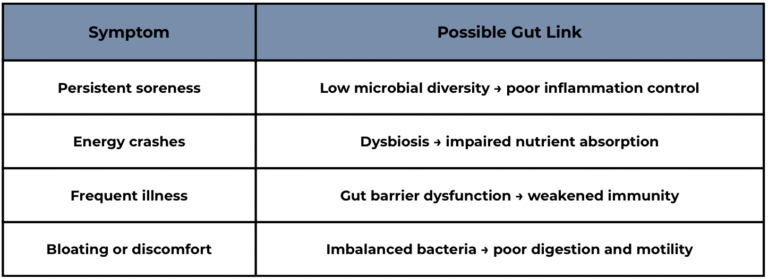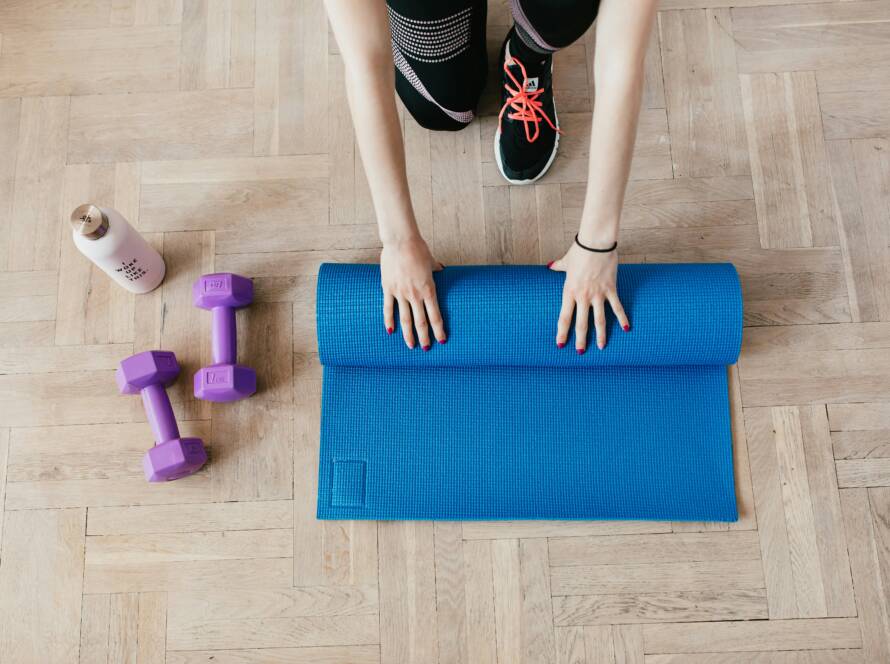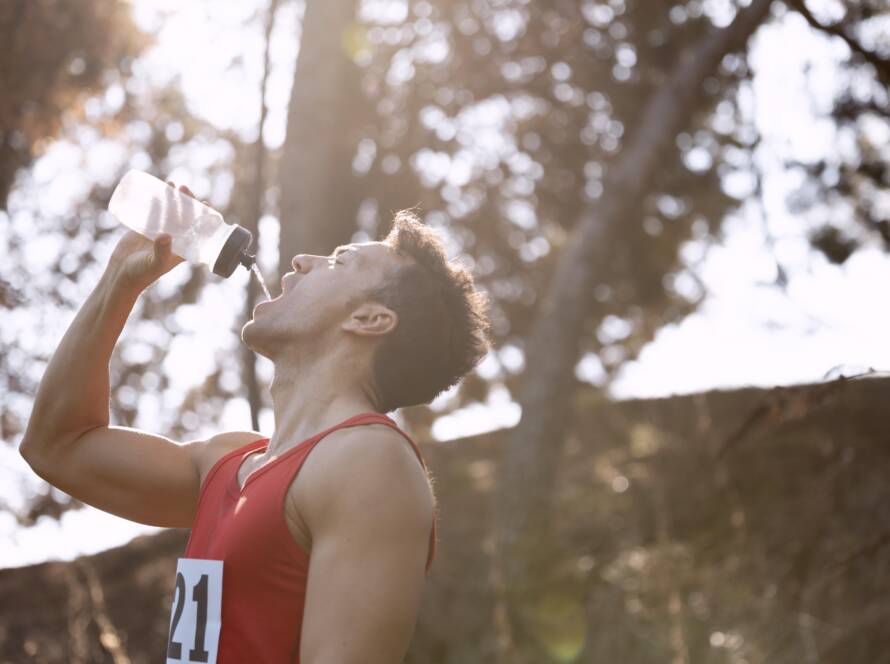You nailed your training. You hit your macros. You even foam rolled like a pro. So why are you still sore, sluggish, or stuck in a recovery rut?
Here’s the twist: your gut might be the missing piece.
🔬 Recovery Isn’t Just Muscular. It’s Microbial
Your gut microbiome, the trillions of bacteria, fungi, and other microbes living in your digestive tract, plays a critical role in how your body recovers from training. It’s not just about digestion. It’s about:
- Nutrient bioavailability: Gut bacteria influence how well you absorb key recovery nutrients like magnesium, zinc, and amino acids (Mach and Fuster-Botella 2017).
- Inflammation control: A balanced microbiome helps regulate systemic inflammation, which affects soreness, immune response, and tissue repair (Clark and Mach 2022).
- Energy metabolism: Certain gut microbes convert lactate, a byproduct of intense exercise, into short-chain fatty acids, which your cells use for fuel (Mach and Fuster-Botella 2017).
- Hormonal signalling: The gut–brain axis influences cortisol, serotonin, and testosterone levels, all of which impact recovery and mood (Clark and Mach 2022).
🚨 Signs Your Gut Might Be Sabotaging Your Recovery
If you’re ticking all the usual recovery boxes but still feeling off, your gut might be waving a red flag:

🥣 Gut-Friendly Recovery Habits That Actually Work
Forget the generic “eat more fibre” advice. Here’s what athletes and coaches are actually using to support gut health
- Cycle Your Ferments
Rotate between yoghurt, kefir, kimchi, sauerkraut, and miso. Each offers different strains of probiotics, and diversity matters (Clark and Mach 2022).
*TIP: Look for “live cultures” on the label. Pasteurised products won’t help your microbiome.
- Prebiotic Power
Prebiotics are the fuel for your gut bacteria. Think:
– Resistant starches (cooled potatoes, green bananas)
– Soluble fibres (oats, flaxseed, garlic)
These help your microbes produce short-chain fatty acids, key for gut lining integrity and inflammation control (Mach and Fuster-Botella 2017).
- Polyphenol Punch
Polyphenols are plant compounds that support microbial diversity. Berries, cacao, green tea, and olive oil are anti-inflammatory and gut-friendly (Clark and Mach 2022).
- Hydration + Electrolytes
Dehydration stresses the gut lining and slows digestion. Pair water with sodium, potassium, and magnesium, especially post-training (Clark and Mach 2022).*Tip: Check out our Last Blog on Electrolytes!
🧘♀️ Recovery Is a Gut Feeling
Your gut isn’t just a passive player. It’s a recovery organ. When you feed it right, you bounce back faster, train harder, and feel better, mentally and physically.
So next time you’re planning your post-workout routine, don’t just reach for the protein shake. Think: kimchi, berries, and a little dark chocolate. Your microbes will thank you.
Want to structure your week for optimal recovery?
Wish to start personal training?
References
Clark A and Mach N (2022) ‘The crosstalk between the gut microbiota and mitochondria during exercise’, Frontiers in Physiology, 8(1):319, doi: 10.3389/fphys.2017.00319.
Mach N and Fuster-Botella D (2017) ‘Endurance exercise and gut microbiota: A review’, Journal of Sport and Health Science, 6(2): 179–197, doi:10.1016/j.jshs.2016.05.001.



